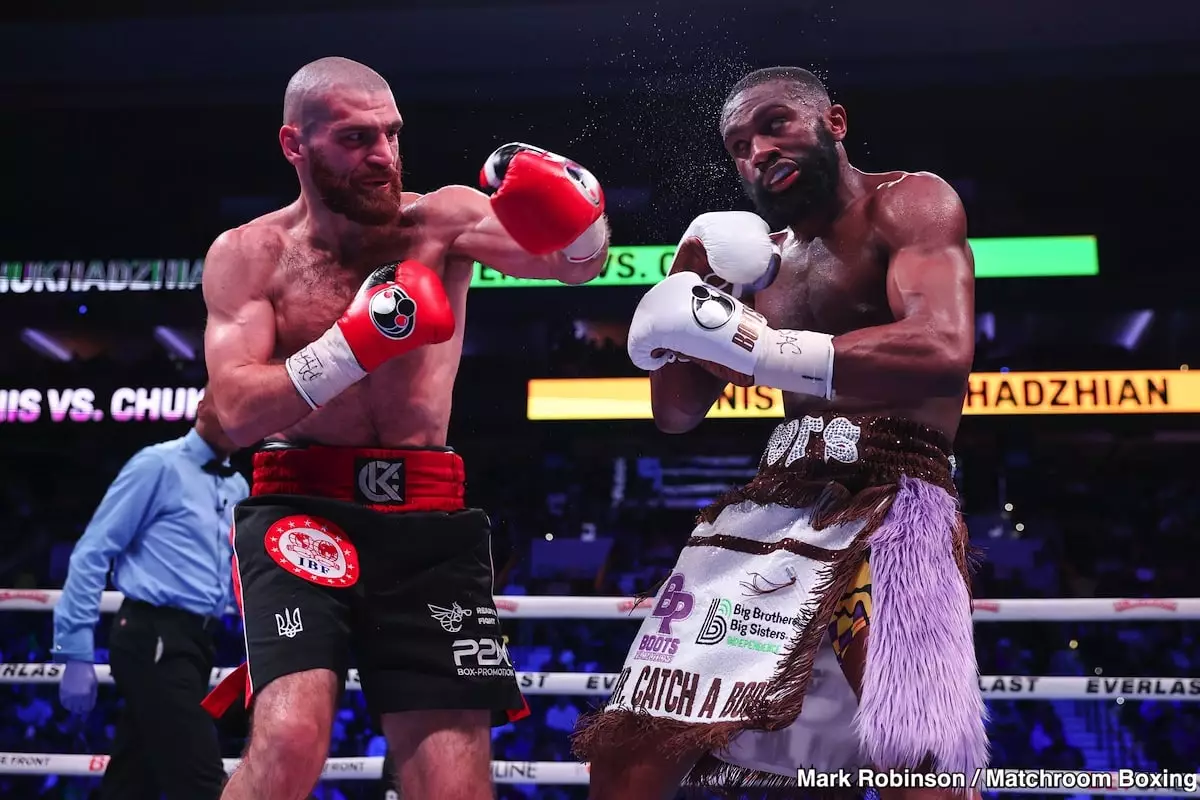Jaron ‘Boots’ Ennis, once hailed as a rising star in the boxing world, is facing a critical juncture in his career. The IBF welterweight champion has garnered attention and acclaim, yet recent performances have prompted skepticism from both fans and experts alike. Among his critics, former world champion Shawn Porter has voiced concerns, dubbing Ennis as “overrated” following a subpar showing against Karen Chukhadzhian. This development has sparked a broader conversation about Ennis’s potential trajectories—specifically, whether a move up to the 154-pound weight class could revitalize or further hinder his career.
Ennis’s rematch with Chukhadzhian was met with high expectations, but it ultimately fell flat. The bout, characterized by a lack of decisive action from Ennis, raised red flags about his readiness for top-tier competition. Porter’s critique highlights an unsettling trend: although Ennis boasts an impressive record of 33-0 with 29 KOs, his recent activity has been alarmingly low. Over the past two years, he has fought merely three times, relying heavily on a reputation that seems increasingly hollow. The countable number of fights raises questions about his preparation and mental fortitude, especially given the volume of training he claims to undergo.
The notion of Ennis moving to 154 pounds—a division rife with experienced and formidable opponents—could present a double-edged sword. While some argue that a change of weight could lead to enhanced competition and greater visibility, the reality is that a leap into this deeper pool of fighters might expose Ennis’s vulnerabilities. Looking ahead, potential matchups with boxers like Terence Crawford, Vergil Ortiz Jr., and Tim Tszyu are daunting. A slip-up against any of these contenders would not only diminish Ennis’s standing but could also lead his promoters to reconsider his viability as a franchise fighter.
Porter’s remarks, while harsh, may hold a mirror to the current state of Ennis’s career. He notes the disparity between the hype around Ennis and the reality of his recent performances. But is Porter’s critique simply “noise” from a former champ, or does it illuminate fundamental issues in Ennis’s fight strategy and progression? The disparity in fight activity and the relatively low level of opposition at 147 pounds have led to a misperception of Ennis’s skills. He has not been tested against elite competition, and the stark contrast with fighters who have taken on tougher foes becomes apparent—both in skill and experience.
Navigating the path forward will demand significant introspection from Ennis and his team. Perhaps a fight with a high-stakes opponent like Vergil Ortiz Jr. could serve as a litmus test for Ennis’s capabilities. This matchup may be the make-or-break moment that defines whether he has the grit to succeed at 154 pounds or thrives in the comfort of lighter, less competitive bouts. Ennis’s ability to adapt and evolve in terms of technique and strategy will be crucial—size and power do not equate to success when faced with seasoned warriors.
As boxing fans, we often elevate fighters based on potential rather than proven ability, leading to disillusionment when expectations clash with reality. Jaron Ennis’s recent performances, coupled with Porter’s scathing critique, force a reckoning. It raises the question of whether he will transcend the label of being “overrated” by proving himself against tougher opponents. The urgency for Ennis resides not just in the pursuit of titles but in a genuine commitment to growth—a journey that may well forge his legacy or lead to his undoing. The boxing world will be watching closely as the ramifications of his next steps unfold.

